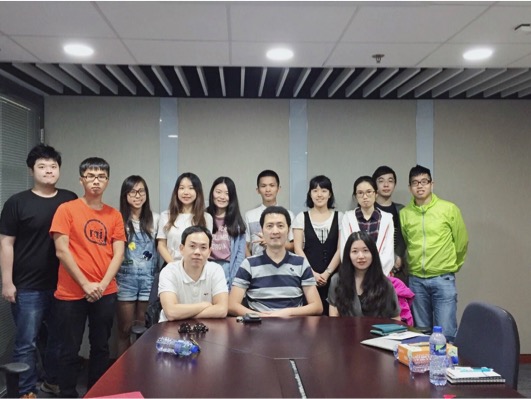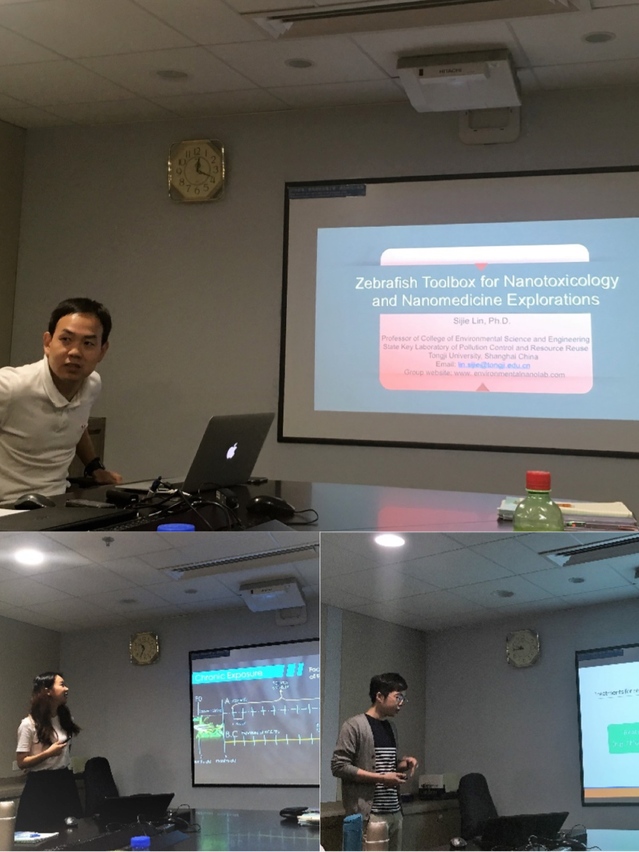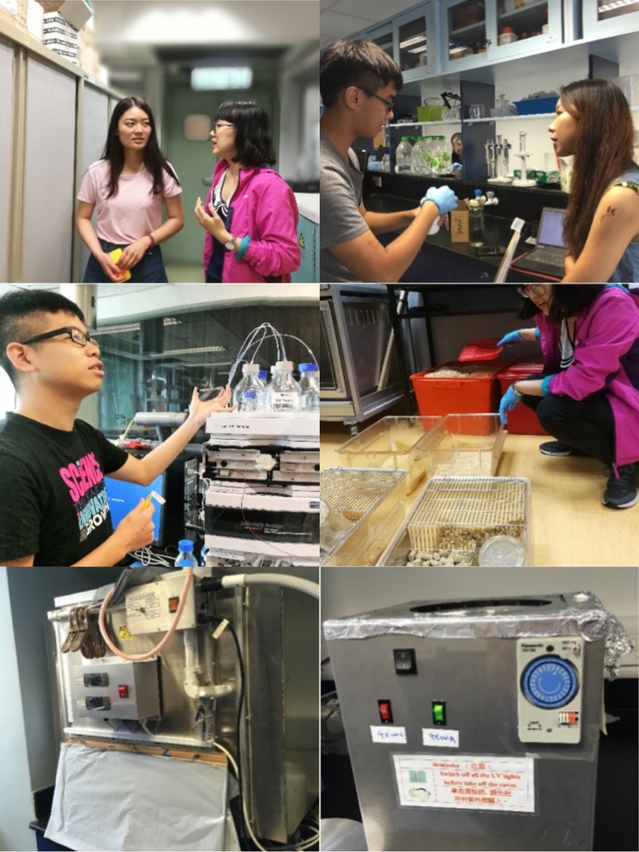From August 21st to 25th, 2017, as invited by professor Shixian Liang, the deputy director of chemistry department, college of science, Hong Kong Baptist University, as well as sponsered by the 11th Tongji University students’ international, Hong Kong, Macao and Taiwan communcation award, Professor Sijie Lin from Department of environmental science, College of Environmental Science and Engineering(CESE) led to the undergraduate Innovative experiment group(Ling Long, Yunyang Li, Jiafu Zhang, enrolled in 2015) to go to Hong kong for a 4-day academic exchange.
Starting from October, sponsored by Shanghai College Students Innovative Project, Undergraduate student Ling Long and Yunyang Li from College of Environmental Science and Engineering and Jiafu Zhang from school of mechanical engineering built up the interdisciplinary Innovative experiment group. They conducted their research on the environmental safety of the degradation products of an artificial sweetener, acesulfame. At the same time, as an international expert in the field of emerging environmental pollutants, Professor Shixian Liang got Tongji University teachers’ and students’ communcation programme between the universities of Hong Kong, Macao and Chinese mainland, which was sponsored by Ministry of Education. He began to Formally cooperate with Professor Lin. Inspired by the 2015-published paper of professor Liang, the Innovative group centerred their research on the biotic environmental effect of the long-term exposure to the degradation products acesulfame, as well as exploring the possibility of conducting long-term low dose exposure experiment using zebre fish us a model species. Professor Liang paid great attention to the project and provided the group with the degradation products acesulfame for research use. Thanks to the visit to Hong Kong, not only did the innovative group learn the specific process of the production and chemical characterization of acesulfame and feel the research atmosphere of Hong Kong, but they also learned about the reaearch progress and more cooperative areas in the future of both research group by means of academic reports and discussion in groups. The innovative group Sincerely thanked professor Liang and his research group for their kind help, which established a solid foundation for further reaearch cooperation in the future.

Professor Lin Led the Innovative experiment group to have a in-depth Seminar professor Liang and the members in his research group on 22nd August. The PHD stutents introduced the main research field of the group respectively and the Undergraduate Innovative experiment group introduced the design, progress, preliminary outcomes and future prospects of the Ongoing experiment. Finally, Professor Li delivered an excellent and Thorough academic report based on his understanding toward Nanomaterial, zebra fish model and environmental toxicity. The two group had a thorough discussion on academic issues.

On 24th August, the three graduate students visited Professor Liang rasearch group’s lab. The reaearch fields of the group mainly include: Morphological analysis of chemical elements, the environmental behavior of emerging pollutants and their impacts on haman’s metabolism. The group members did a careful and thorough introduction in different groups, from the principle and operation of Experimental apparatus, methods of data analysis to research progress and difficulties to overcome in the future. The Undergraduate Innovative experiment group learned the principles and methods of acesulfame degradation as a focus. Also, they discussed how to measure the accumulated content of acesulfame degradation prosucts after exposure under environmental conditions from qualitative to quantitive in the Subsequent experiments.

The days in Hong Kong is short but lovely. The surprising arrival of Super Typhoon Tiange is more like a unique greeting way of Hong Kong. Both of Hong Kong’s enthusiasm and elegance, tradition and modern had a deep impression on everyone.
Professor Lin and professor Liang open up more possible cooperative areas between both research groups in the future. They had known each other better and had a deeper relationship. The Undergraduate Innovative experiment group displayed the outcomes of their project, discussed and mend the future plan. They thoroughly acquaintanced the Frontier research direction in the interdiscipline of chemical and environment as well as looked for more acdemic communication between them. They went into the laboratory and felt the real atmosphere of research work.